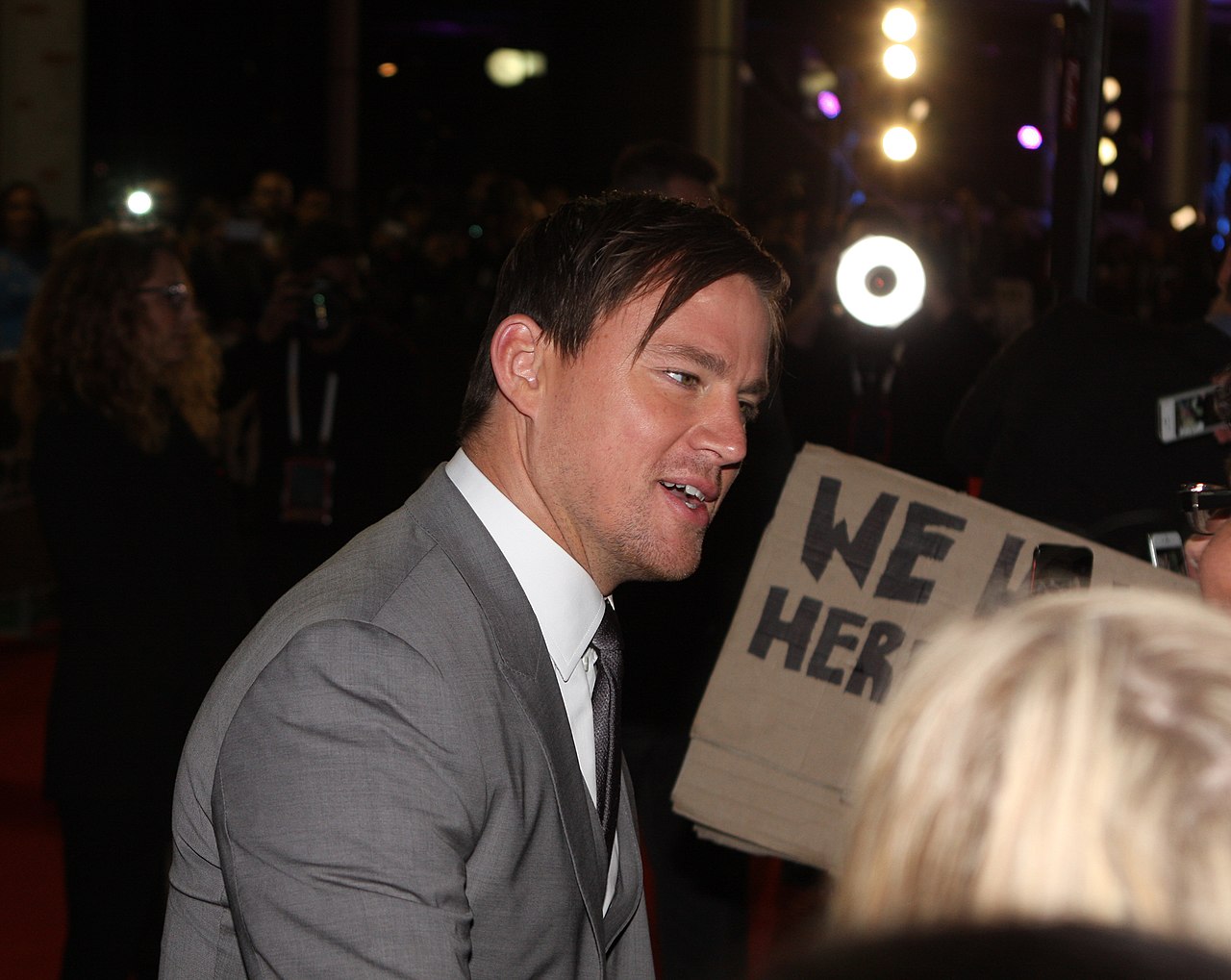Helen Warner
Associate Professoer in Cultural Politics, Communication and Media Studies, University of East Anglia
The third and final instalment of the Magic Mike series is still drawing enthusiastic audiences in UK cinemas. Inspired by Channing Tatum’s real-life Magic Mike Live stage show, the conclusion to Steven Soderbergh’s trilogy operates as a backstage musical.
As a result of the economic uncertainty caused by the global pandemic, Mike Lane (Tatum) is forced to return to the world of male stripping – this time as the director of a live show financed by wealthy socialite (and love interest) Max Mendonza (Salma Hayek), in London.
Like its real-life West End inspiration, Mike’s show promises to centre on women’s desires and provide its presumably sexually repressed audience with “whatever she wants, whenever she wants”.
In an interview for The Drop podcast, Soderbergh, the film’s director and cinematographer, explains that he used the camera and cuts in such a way as to emphasise “the emotional experience” of female spectators and show “how she feels”. This prompts the question that inspired the field of feminist film criticism: is it possible for male filmmakers to represent a female perspective on screen?
The male gaze
In her essay Visual Pleasure and Narrative Cinema, feminist theorist Laura Mulvey argued that the patriarchal structures of Hollywood position the spectator as male. Her theory of the “male gaze” describes the process by which spectators (regardless of gender) are encouraged to view women on screen through the eyes of (heterosexual) men, stripping them of agency and empowerment.
To be sure, it’s not difficult to find examples from the last hundred years of cinema where lingering shots of scantily clad female bodies reduce women to objects of desire. However, Mulvey’s damning indictment of mainstream narrative cinema did prompt many to question whether it was possible to create a “female gaze”, whereby spectators were encouraged to adopt a female perspective from which to view their desires onscreen.
Soderbergh seems to think Magic Mike’s Last Dance does precisely this. But his attempts to satisfy female audiences’ sexual desires utilise the same lingering shots of slim, smooth, able male bodies that have historically fetishised women’s bodies on screen. And it’s a technique that seems to have backfired according to the critics.
For Mulvey, this might serve as proof that a female gaze is not possible within the confines of Hollywood. For others, it signals the need for more diversity in filmmaking. Indeed, women remain the minority when it comes to creative roles in Hollywood.
A woman’s eye view: messy, funny, lustful
Yet, there are an increasing number of women filmmakers celebrated for their depiction of female sexuality and desire onscreen. Greta Gerwig’s solo directoral debut Lady Bird, for example, was praised by critics for its refreshing take on adolescent sexual relationships. For her 2022 melodrama Don’t Worry Darling, director Olivia Wilde reportedly took inspiration from queer cinema in her attempt to represent female pleasure onscreen.
Christina Newland’s recent book, She Found It At The Movies, compiles essays from women writers on the politics of female desire and sex as they appear on screen. In particular, the collection celebrates women’s contributions in television, such as Phoebe Waller-Bridge’s award-winning comedy drama Fleabag and Sarah Gubbins’ short-lived, though critically acclaimed, I love Dick, for providing new ways to tell stories of love, passion, intimacy and romantic failure.
The argument that the gender of a filmmaker influences their creative practices is not without problems – for example, the idea that only women can tell women’s stories, as if there is a universal and easily knowable category of “women”. But it is surely the case that the experience of living in the world as a particular gender will shape that worldview. Consequently, diversifying film crews is no bad thing when attempting to capture different perspectives.
What’s clear from Magic Mike’s Last Dance is that shooting male bodies in the same way as female bodies doesn’t translate to women’s empowerment. Instead, this kind of dehumanisation reminds us that patriarchy is harmful to all of us.





